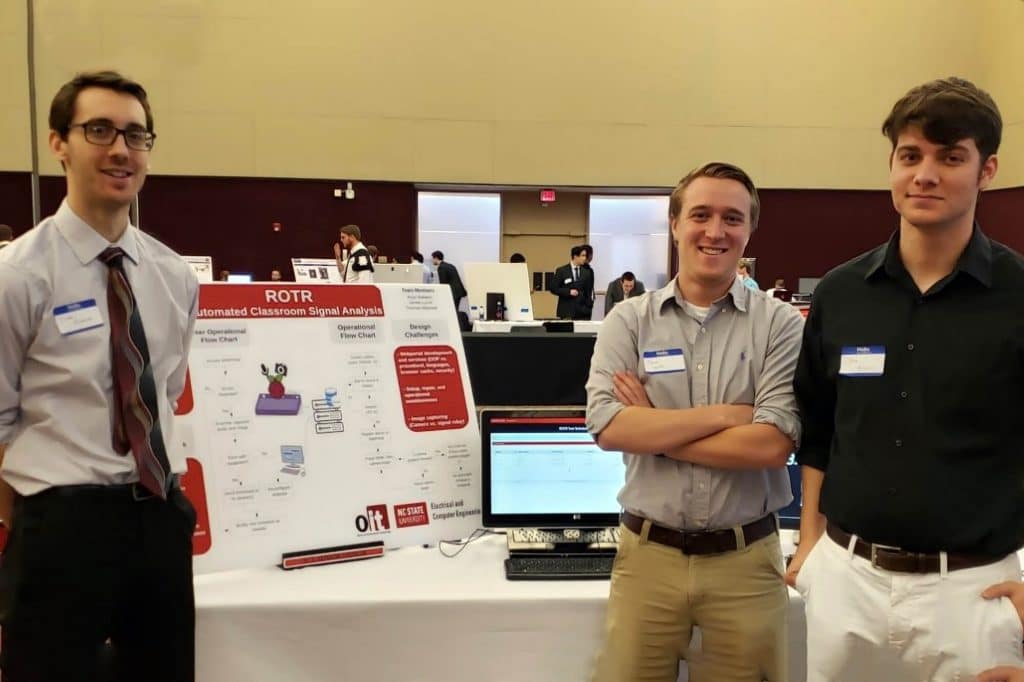
On a daily basis, ClassTech—a unit within NC State’s Office of Information Technology—manages and services over 150 high-tech classrooms. Staffers operate much like a pit crew, efficiently running diagnostic tests and quickly fixing technology issues between class changes.
But with the demand for projectors and speakers in classrooms and a subsequent increase in the number of high-tech classrooms to support, the question becomes how to support them all with limited staff?
ClassTech head Ron Bradley and his team have been thinking about ways to improve room check efficiency for the past few years.
“We are a technology university and we are the centralized IT group, so we have to find ways to incorporate the technology the students and faculty expect us to have in classrooms,” Bradley explained. “You have to be able to support it and we can’t do that with just more staff. Plus we wanted to do something cool. We’ve got some really bright students that work for us.”
Bradley teamed up with Rachana Gupta, teaching associate professor and associate director of the Electrical and Computer Engineering senior design program, to bring in students to help to develop a room check solution. Under Bradley’s supervision, the team is developing a kit containing a camera, microphone and Raspberry Pi microcomputer to remotely run technology performance tests in classrooms after hours. In its initial testing, the kit alerted ClassTech staffers if a projector failed to display an image or speakers emitted an unusual frequency.
Bradley is now working with students to design a portal that controls the microphones, cameras and microcomputers in the kit. The goal is for staffers to use the portal to initiate remote tests on classroom technology.
Bradley hopes that in the near future the kit will automate the room check without interfering with class times and catch up to 75 percent of the most common problems ClassTech staff encounter during their on-site checks. While the roomcheck kit is projected to take three years to complete, Bradley says the project is a worthwhile investment of time, freeing up ClassTech staff to service additional 110 classrooms and to work on other projects.
While the partnership has helped to develop the room check tool kit, it has also helped students gain work experience. Gupta explains, much like in industry, students must learn skills “on the go” while navigating a variety of tools to make the project work.
“A good project is both challenging and also feasible for the students to work on and where the mentor or sponsor is really involved in it and has a stake in it,” Gupta said. “They want to work with students so it makes a good team. And in Ron’s case, all that is true.”